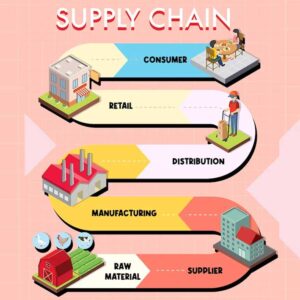
Read Time:2 Minute, 30 Second
The Gig Economy and Freelancing Trends: Embracing a New Era of Work
The emergence of the gig economy and the growing trend of freelancing have transformed the traditional employment landscape. With technological advancements and shifting work preferences, more individuals are opting for flexible work arrangements. In this blog, we will explore the concept of the gig economy, delve into freelancing trends, and discuss the implications of this new era of work.

Rising Freelancing Trends:
- Increase in Freelancers: The number of freelancers has been steadily rising, driven by factors such as changing work preferences, technological advancements, and economic shifts.
- Diverse Freelancer Profiles: Freelancers can be found across various industries, including graphic design, writing, programming, marketing, and consulting. They offer a wide range of skills and expertise to clients.
- Gig Platforms: Online platforms like Upwork, Fiverr, and Freelancer.com have facilitated the growth of the gig economy by connecting freelancers with clients globally.
Implications of the Gig Economy and Freelancing Trends:
- Workforce Flexibility: The gig economy offers individuals the flexibility to choose projects, clients, and work hours. It enables them to pursue multiple sources of income and explore diverse career opportunities.
- Economic Impact: The gig economy contributes to economic growth by providing job opportunities, promoting entrepreneurship, and fostering innovation.
- Challenges and Benefits: While the gig economy offers flexibility, it can also present challenges such as income volatility, lack of benefits, and uncertain job security. However, freelancers often enjoy greater autonomy, satisfaction, and the potential for higher earnings.
Future Outlook:
- Growing Demand: The gig economy and freelancing are expected to continue expanding as businesses seek flexible talent, and individuals embrace the freedom and autonomy it offers.
- Remote Work: The COVID-19 pandemic has accelerated the shift towards remote work, further fueling the gig economy as companies adapt to virtual collaborations and seek remote talent.
In Conclusion:
The gig economy and freelancing trends have disrupted traditional employment models, offering individuals newfound flexibility and autonomy. While the gig economy presents both opportunities and challenges, its impact on the workforce and the economy cannot be overlooked. As technology continues to advance and work preferences evolve, embracing the gig economy and freelancing can lead to a more diverse, agile, and fulfilling future of work.
Quotes and Citations:
- “The gig economy is a reaction to the changing nature of work, but it is also shaping the future of work.” – Diane Mulcahy, Author of “The Gig Economy”
- “Freelancers and gig workers are the pioneers of a new way of working, one that offers freedom, flexibility, and endless possibilities.” – Freelancers Union
References:
- Mulcahy, D. (2016). The Gig Economy: The Complete Guide to Getting Better Work, Taking More Time Off, and Financing the Life You Want.
- Freelancers Union. (n.d.). Freelancing in America. https://www.freelancersunion.org/resources/freelancing-in-america/















